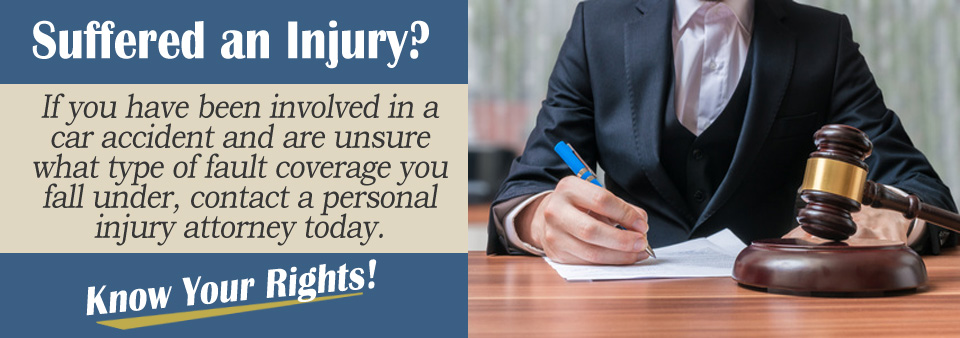Laws vary from state to state, and personal injury laws are no different. Does it matter which state you are in when you are in a car accident, when it comes to filing a personal injury claim?
The answer to this question is a resounding yes. It is important you know the difference between state laws when it comes to fault in personal injury claims.
We have asked attorney Alaina Sullivan, about what you should do. Here is what she had to say:
Fault states
Most states in the U.S. operate on a fault-based or tort liability system. In these states, insurance companies pay according to the percentage or degree of fault each party plays.
Therefore, when submitting your evidence to the insurance company, it is important you submit information showing you were not the party at fault.
If you do not come to an agreement with your insurance company on the compensation given, you can then file suit for any other damages not compensated, including lost wages, pain and suffering or medical expenses.
No-Fault Laws
In some states, who was at fault in a car accident does not matter. These states adopt what is known as no-fault laws.
Twelve states currently have these types of laws, including Florida, Hawaii, Kansas, Kentucky, Massachusetts, Michigan, Minnesota, New Jersey, New York, North Dakota, Pennsylvania and Utah.
The policy behind these types of laws is the tort system has led to lengthy and expensive court battles over who is at fault in a car accident. In these states, the victim only needs to show the accident happened to his or her insurance provider.

The driver’s insurance company compensates for medical expenses, property damages and lost wages up to the amount spent in the policy.
When it comes to seeking pain and suffering, emotional distress or inconvenience from the other driver, your no-fault portion of your insurance police is usually referred to as “PIP” or personal injury protection.
Lawsuits can be permitted for any injuries that meet a certain threshold, whether monetary or verbal. In the monetary threshold states, the injuries must be over a specific dollar amount.
In other states where there is a verbal threshold, injuries must be severe, meaning significant loss for the use of a body part, disfigurement, permanent disability or bone fracture. It depends on the type of PIP packaging you have.
Add-on Coverage in No-Fault States
A handful of states including Arkansas, Delaware, Maryland and the District of Columbia allow add-on coverage. In these states, drivers are allowed to purchase personal injury protection as an option coverage.
The plan pays the injured party without consideration for the injuries, but the driver can sue or be sued for accident-related injuries as well as pain and suffering.
Threshold Limits
Some states hold threshold limits when it comes to no-fault insurance. Seven states, including Hawaii, Kansas, Kentucky, Massachusetts, Minnesota, North Dakota and Utah, have dollar threshold amounts where injures must be above a set dollar threshold before they can take their personal injury case to court.
States, including Florida, Michigan, New Jersey, New York and Pennsylvania hold verbal thresholds where you can file a liability claim if you are at least “seriously hurt,” meaning a certain verbal threshold must be met, meaning a permanent injury, scarring, or bone fracture.
Choice States
Three states allow you to choose your policy based on either the no-fault or the tort-based system where the person holding the policy holds the right to litigate for accident compensation above what is needed for damages not covered by no-fault insurance. These states include Kentucky, New Jersey and Pennsylvania.
Contact an Attorney Today
If you have been involved in a car accident and are unsure what type of fault coverage you fall under, you should contact an attorney today to discuss your case if you do not currently have a lawyer or have any questions.
A licensed personal injury attorney will be able to evaluate your case and determine if you have a claim against the other party’s insurance company.
To receive the compensation for your medical bills, property damages, and pain and suffering, you should speak with a personal injury attorney in your area today.